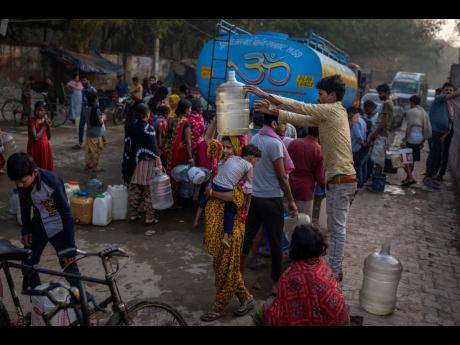Mario Lubetkin | Water crisis, everyone’s problem
THERE IS no doubt that water is a fundamental resource for everyone. It is essential for health, energy, food production, the development of healthy ecosystems, climate adaptation, and the reduction of poverty and inequalities. Water is central to sustainable development.
Despite its obvious relevance, we are facing a global water crisis and an evident challenge in fulfilling the Sustainable Development Goals related to water.
Latin America and the Caribbean is no exception. The region has 36 per cent of the water available worldwide for consumption. However, its distribution is heterogeneous and has a high seasonality, presenting areas with extreme water scarcity. Access to safely managed water supply services is still unavailable to 166 million people, and 24 million still do not have access to basic services.
With the impacts of climate change, several countries have been accumulating high rates of water stress and are suffering more frequent and intense prolonged droughts, as is the case of Mexico, Chile, and Peru, or the countries of the Central American dry corridor. In the Amazon, which has traditionally been very humid (receiving up to 5,000 mm of rainfall per year), some areas have become more arid, with dry periods having increasingly more significant impact. In the Caribbean, seven countries recorded severe droughts in 2020.
Another issue of concern is agricultural losses due to flooding. Its negative effects can mean loss of production and income for farmers; loss of arable land due to erosion and topsoil washout; loss of seeds and fertilisers, and loss of agricultural infrastructure and irrigation systems. All of these can significantly impact food security and farmers’ livelihoods.
What are we doing at the Food and Agriculture Organization (FAO) to address the water crisis? To make progress in water resources management, we know that joint work between governments, civil society, and local communities is fundamental.
We are working on improving and efficiently using water, implementing efficient irrigation technologies, sustainable agriculture, and ecosystem-based water use. In addition, we promote the protection of water resources through good agricultural practices and land and soil management.
We know that this is not enough. From the FAO Regional Office for Latin America and the Caribbean, we support the agreements of the Regional Action Agenda for Water, coordinated by the Economic Commission for Latin America and the Caribbean, in which the management of water resources is fundamental for food security.
We welcome the realisation of the United Nations Conference on Water 2023. We will continue to work to achieve commitments from all sectors to develop innovative and transformative solutions that will enable us to respond comprehensively to efficient water management.
Mario Lubetkin is assistant director general and FAO regional representative for Latin America and the Caribbean. Send feedback to columns@gleanerjm.com



